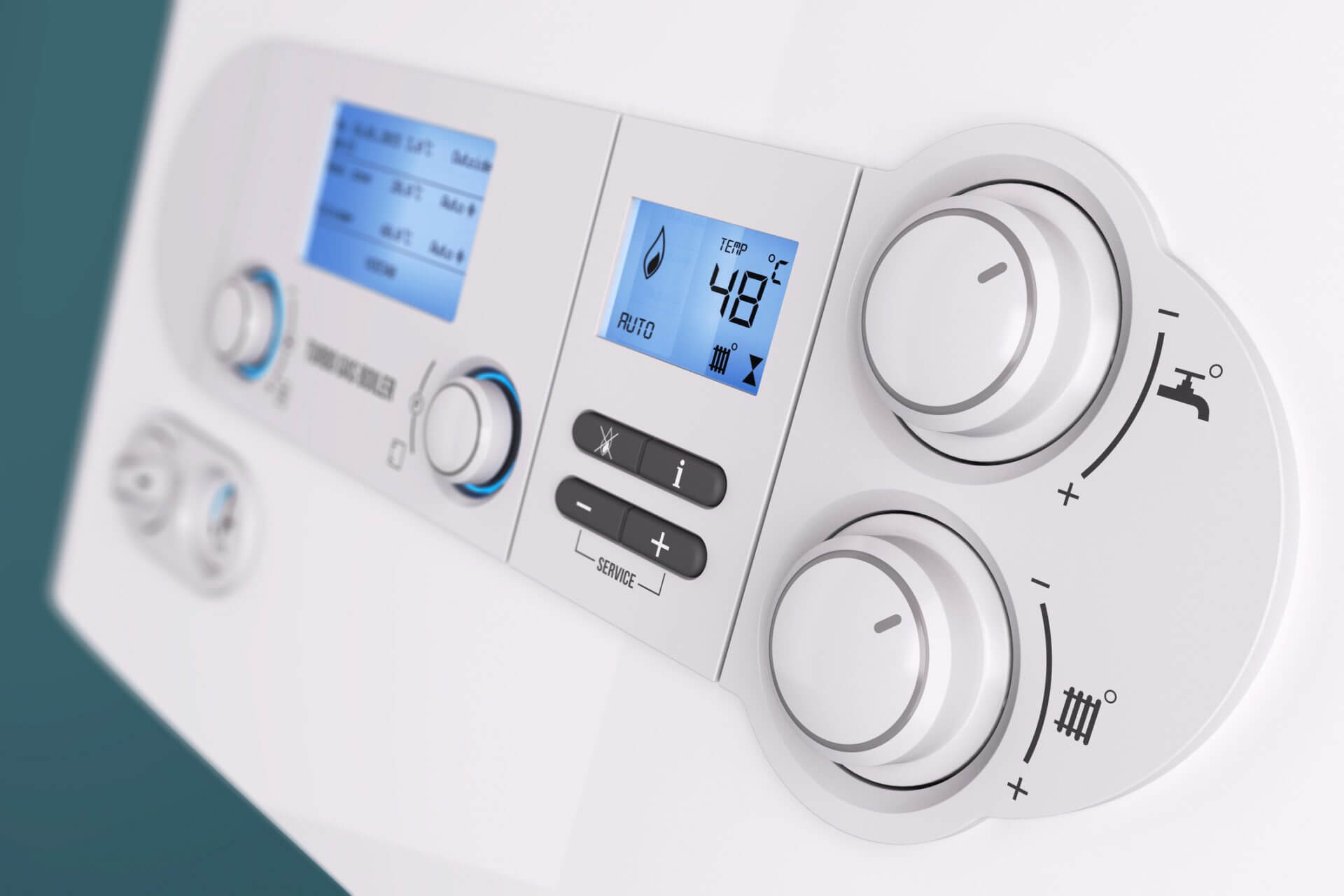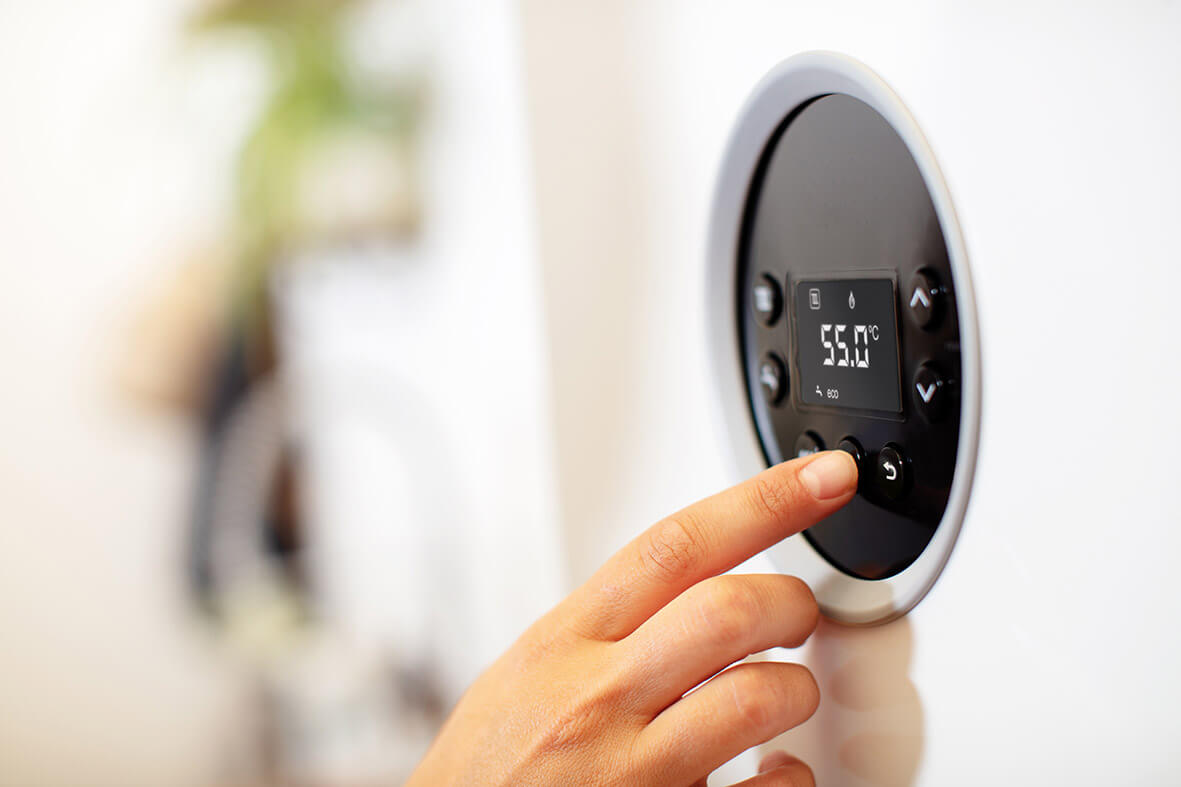
How to fix a leaking shower head.
- Dec 17, 2020
- 0



10 Common boiler problems
A sudden issue with your boiler is never ideal. There are few things more inconveniencing than having to go without the heating and hot water you need for your home.
Below we list some of the most common boiler issues and outline their potential causes. We also highlight some possible fixes, so read on to find out how you can get your combi, heat-only or system boiler back up and running.
• Leaking
• Low boiler pressure
• No heating or hot water
• Frozen condensate pipe
• Radiator faults
• Boiler not responding to thermostat
• Gurgling, banging or whistling noises coming from your boiler
• Pilot light keeps switching off
• Boiler won’t turn on (no power)
• Boiler breakdown
1. Leaking
A boiler leak is usually caused by an issue with an internal component, such as a pressure valve or pump seal. If the leak stems from your pressure relief valve, it is likely that your system’s pressure has become too high. Should the leak be due to a problem with the pump seal, the seal could have worn out.
A leak that has developed around your system’s pipes could be caused by corrosion. There could also be an issue with the way in which your system was installed. We recommend that you consult a trained engineer to help identify and fix this issue. If the leak is caused by a particularly serious fault, your engineer may recommend that you get a new boiler installed.
Book a repair
Get a quote for a new boiler
2. Low boiler pressure
You can usually identify if your boiler’s pressure is too low by taking a look at its built-in pressure gauge. Ideally, your boiler’s pressure should be set at the 1.5 bar. If it is below 1, your boiler will not be able to function properly.
Low boiler pressure can be caused by issues such as a system leak, recently bled radiators or a failed component or seal. To help identify the issue, you could firstly look for visible signs of a leak, but you should not attempt to remove any casings from the boiler. If you discover a leak, we recommend that you contact a Gas Safe registered engineer. If you do not locate a leak, you could try repressurising your boiler if you feel comfortable doing so. Find out how with our step-by-step guide.
Book a repair
3. No heating or hot water
Naturally, it can be very frustrating when your boiler ceases to do the very thing it was designed to do – provide your home with heating and hot-water. This issue can be caused by anything from faulty motorised valves, broken system diaphragms and airlocks, to low pressure or a broken thermostat.
To determine whether this issue is caused by low pressure, you should check your pressure gauge to see if it is below 1. If it is, it may need repressurising. If the intermittent heating and hot water is caused by an issue with your thermostat, check the device’s manufacturer guide for a possible solution – if none can be found, we recommend that you contact your manufacturer for help.
If none of these suggestions help, we advise that you get in touch with a trained engineer as issues such as a broken motorised valve or faulty diaphragm will require a professional.
Book a repair
Get a quote for a new boiler
4. Frozen Condensate Pipe
This issue is very common, particularly in the colder seasons. Your system’s condensate pipe is responsible for transporting the condensate from your boiler to your outside drain. During periods of cold weather, the condensate can freeze and cause a blockage to occur. This is particularly common in homes where the condensate pipe is fitted externally or in an unheated space such as a garage. This issue could cause the condensate to revert back up into the boiler and lead to the system breaking down.
Luckily, you should be able to fix this problem quickly and easily by yourself. Take a look at our video guide on how to defrost a condensate pipe.
** Tip alert – Lagging or insulating the pipe can often be a long-term solution for this issue.
5. Radiator faults
Cold patches and other problems are usually caused by a build-up of air or sludge inside of radiators – this can cause heat to be distributed unequally. Cold patches in different areas can indicate different kinds of issues, find out what could be causing your radiator problem on our common reasons why radiators are not working article.
A great deal of radiator issues can be resolved by bleeding the radiator, a simple task that you can undertake by yourself. Follow our guide on how to bleed a radiator for advice.
Book a repair
Get a quote for a new boiler
6. Boiler not responding to thermostat
Have the clocks gone backwards or forwards recently? If so, you should ensure that the device is in line with the new time. If your boiler is completely failing to respond to your thermostat, the controls may be broken or old. However, there are a few checks that you should do before concluding that it is completely kaput.
For example, try replacing the batteries (obvious, I know, but a very common mistake!). You could also try positioning the device closer to the boiler and check for any interference that could be causing an issue. If the problem with your thermostat persists, take a look at the instructions booklet for advice or contact the manufacturer for help.
7. Gurgling, banging or whistling noises coming from your boiler
It’s normal for your boiler to make some noise whilst it’s in operation, especially when it’s firing up. However, if your boiler suddenly begins to make unusual gurgling, banging or whistling noises, we recommend getting in touch with a qualified engineer.
Unusual boiler noise can be caused by air in the system, a faulty pump, low water pressure or even a build-up of limescale known as “kettling.” Take a look at our article on noisy boilers to find out more.
Book a repair
Get a quote for a new boiler
8. Pilot light keeps switching off
Older boilers may have a permanent pilot light which needs to stay lit in order to light the larger burner within your boiler. If this light keeps going out there could be a faulty thermocouple that is cutting off the gas supply. Alternatively, there could be a deposit build-up or a draught blowing the light out.
You could try to reignite the pilot light yourself if you are comfortable doing so. Please follow the instructions in your boiler manual. Before you do this, you should ensure that your gas stopcock is on and that there are no issues with your gas supply – you can check other gas appliances to confirm this. We recommend contacting a Gas Safe registered engineer to help solve this issue.
This fault is more common with older boilers, as modern systems are not built with pilot lights and ignite electronically. If the issue with your pilot light persists, it may be worth getting a new boiler installed.
Book a repair
Get a quote for a new boiler
9. Boiler won’t turn on (no power)
If your boiler won’t turn on, the first thing you should do is check other appliances and power supplies in your home to see if they are working. If they are, check your fuse box to see if any switches have failed or tripped. If you still cannot find the cause, we recommend getting in touch with a trained engineer.
If your boiler is turning on but keeps going off, the pressure could be low or there could be a blockage that is inhibiting the system. Check your system’s pressure gauge and repressurise the boiler if it is set below 1. Alternatively, contact a Gas Safe registered engineer.
Book a repair
Get a quote for a new boiler
10. Boiler breakdown
If left unaddressed, all of the above issues can eventually lead to a complete boiler breakdown. In which case you should contact a Gas Safe registered engineer as soon as possible.
**Tip alert – If you have a regular/heat-only boiler, you may have access to a backup immersion heater that could provide you with hot-water.
Age and inefficiency can also cause boilers to breakdown beyond repair. If you have an old, inefficient boiler, we recommend investing in a new system so that you can get the heating and hot water you need. A new modern and energy-efficient boiler could also help you save on your energy bills*!
Get a quote for a new boiler
It is crucial to remember that you should only perform checks on your boiler that are simple with minimum risk. Do not attempt to fix the issue yourself as this could be extremely dangerous.
All of our engineers are Gas Safe-registered and fully qualified to diagnose and fix your central heating problems. So, whether you know what the problem is or not, you can book an appointment with one of our local experts to diagnose the issue and get your heating back up and running effectively again